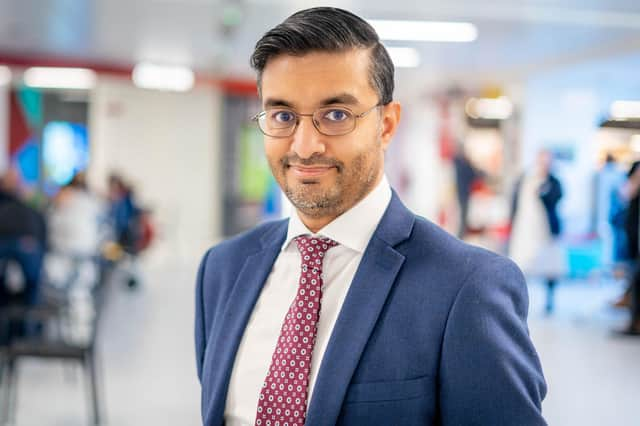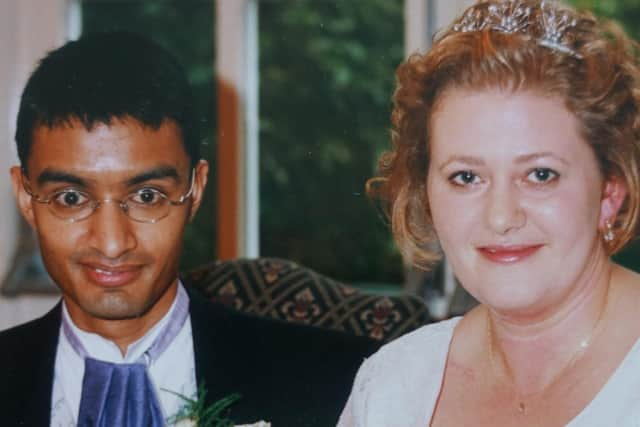Column: Organ donation matters - and my wife’s legacy proves it


Thinking it was a faint, I called 999 and events moved quickly. The ambulance crew and I tried to resuscitate her but there was nothing they could do, and at hospital I was asked about organ donation.
I have never felt so alone, but Sharon was passionate about organ donation and even though the next hours and days were devastating, I knew her wishes and I knew that she had protected me by having those conversations.
Advertisement
Hide AdAdvertisement
Hide AdI learned, much later, that Sharon had died as a result of the most severe type of brain haemorrhage, like someone just turning the lights out.
As ways to die, it was painless, and she was with her family – it was just 50 years too early.
Sean – my transplant coordinator – was amazing. He looked after me through the whole process. It took me a few attempts to walk away from Sharon for the last time before she went in for her transplant operation. Sean stayed with Sharon throughout the operation, which was a big comfort to me.
Sharon’s kidneys and her liver (split into two) saved four people, including a little boy of one-and-a- half who wouldn’t have made it to two without Sharon’s liver. That above all made me cry tears of joy – she loved children, she would have been proud of that.
Advertisement
Hide AdAdvertisement
Hide AdThe law changed in May 2020 – referred to often as the opt out system.


This means adults are considered to have agreed to be an organ donor when they die unless they have recorded a decision not to donate.
This only applies when no one knows your organ donation decision – so make that decision yourself.
To me, this makes telling your family even more important than before, as your family will be consulted.
Advertisement
Hide AdAdvertisement
Hide AdI would encourage everyone to make your decision, record it on the NHS Organ Donor Register, and tell your family. Protect them from having to make that decision alone.
Sharon’s memory lives on, and I have been proud to become an Organ Donation Ambassador for NHS Organ Donation since 2018.
In February I was appointed chair of Chesterfield Royal Hospital NHS Foundation Trust, with my first act was to unveil the Trust’s ‘Tree of Life’ - a sculpture, which has pride of place in the main entrance, supporting conversations and remembering those who have given such precious gifts.
You can find out more and register at OrganDonation.nhs.uk – and become a part of the British Transplant Games, which come to Nottingham in August.